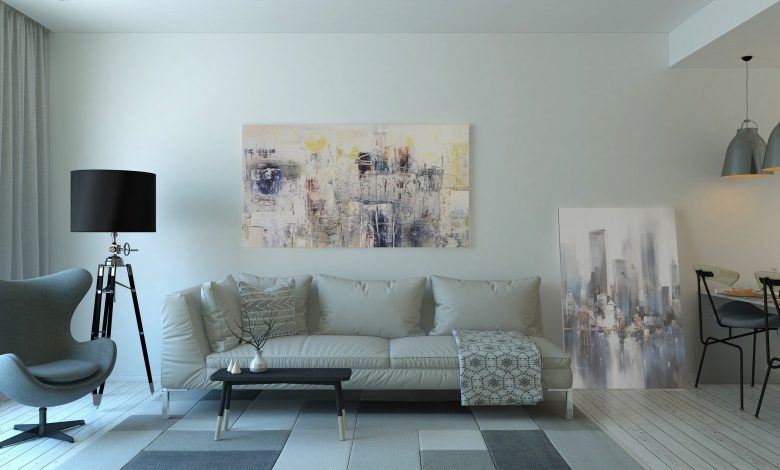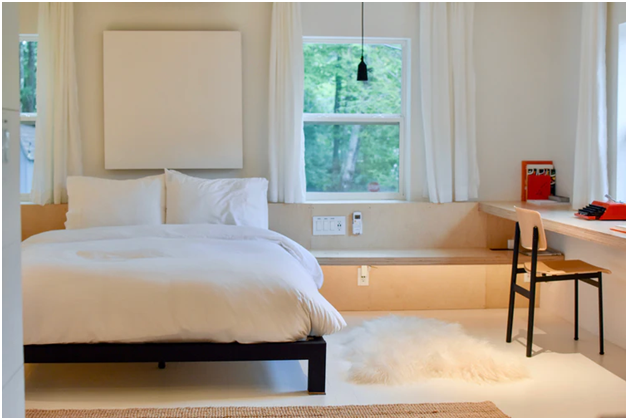5 Questions to Ask When Planning for a Home Improvement Budget

There are many reasons why you might want to make home improvements, whether you’re home needs a lot of TLC or whether it’s already in perfect condition and you just want to change the design.
Home improvements when you own property can be significant in improving the value of your home. This can make a considerable difference if you’re looking to sell, either now or some way down the line.
Home improvements may also be to improve your lifestyle and quality of life at home, such as making a space more livable or filled with more natural light to boost your mood.
Home improvements may also be simply to satisfy a creative itch to try new updates or design schemes to make your home more your own.
No matter your reasons for planning home improvement, a budget is always essential as part of your home design plans.
Table of Contents
Why Plan Out a Budget?
A budget is essential for many different reasons when planning out your lifestyle and commitments. When it comes to home improvement, a budget is even more important to make sure you stay on track and understand what design improvements you’d like to make.
Reasons to plan out a budget include:
- Helping you to understand what you can comfortably afford. This is important because some design dreams you may have may simply not fit into what you can financially achieve, so you may need to re-evaluate.
- Helping you stay on track. Even with an initial budget and plan, there are always risks of overspending. Budgets help you to plan financially every step of the way, so you don’t get carried away with your new home improvements.
- Helping you understand how much things really cost. Budgets require research, which means you’ll have to look into the costs of certain items and supplies you’ll need for your home improvement projects. This may be less money or more money than you originally thought, which is why it’s essential: it could mean you can afford more than you thought, or it could mean that you can’t go ahead with certain plans because the materials are more expensive than you thought. So, it’s always worth checking and understanding costs.
5 Questions to Ask When Creating Your Budget
What is Your Home Improvement Priority List?
You may have several different home improvement jobs that you would like to do, whether big or small, and your current budget may not allow for them all at once. It may be that you need to wait a few years or save some more for certain jobs if you can’t do everything on your list right now.
That’s why prioritizing your home improvement list in line with your budget will be extremely helpful. Once you have decided which improvements are a priority (such as new windows over a paint job), you can then align your budget to what you need to be able to afford right now and determine the time frame you can expect.
You can also pick and choose which important jobs from your list you’re able to do now and which will have to be put on the back-burner if your current budget doesn’t allow for all of them.
Have You Done Your Research and Gained a Variety of Quotes?
For any home improvement job that is going to require paying or hiring someone to help you (such as fixing a roof or fitting new windows), getting a variety of quotes is a must. You can’t create a budget without research or quotes because you won’t have any idea how much these services will cost.
Gaining more than one quote will help you to compare and find the best deal, such as finding out how much new windows will cost from services like timberwindows-direct.co.uk or how much a plumber would charge for a bathroom remodel. You can then apply this to your budget.
Have You Included Emergency Funds in Your Budget?
Your budget isn’t just about the materials and manpower you need for the improvements you want. As with any home improvement project, things are always at risk of going wrong. This could be broken materials, extra labor hours needed, last-minute costly changes, or even if you change your mind and want to go in a new direction.
This is where emergency funds are essential. These should be included in your budget as a safety net should things go wrong or need to be changed, so this will be on top of your budget for materials. If you don’t have any spare cash for emergency funds just yet, you may need to wait and save a little more or make fewer improvements now to make room for spare emergency funds.
How Much Can You Comfortably Save Every Month?
Certain home improvements will be an ongoing process, and you may be eager to begin without having the full funds saved in advance. This is possible as long as you’ve budgeted for the months to come, and one key question to ask if you haven’t got the money upfront is how much you can save every month going forward to put into your home improvements.
To do this, you may need to do a separate budget for your monthly household outgoings to understand how much you have left every month after bills. This can then be money set aside for ongoing home improvements, and there may even be a couple of outgoings you’re willing to sacrifice (like take-outs or nights out) to put more towards your home improvement fund.
Will the Updates Add Value?
You might be contemplating which home improvements to make, and some may seem extremely costly and put you off. However, a key question to ask is whether any costly updates will actually add significant value to your property, as these will be the ones you definitely want to include in your home improvement budget. The initial cost will then be made back when you gain that extra value when it comes time to sell.





